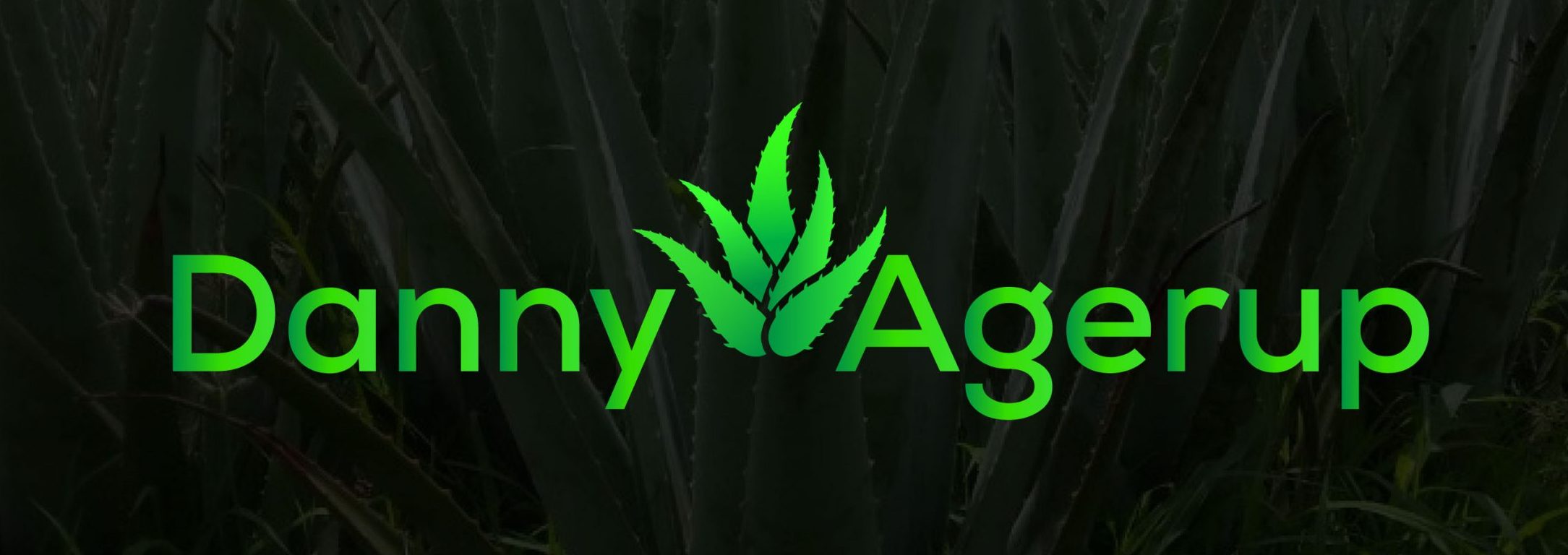Charity in Africa: Addressing Poverty and Inequality
Charity in Africa is a topic that has gained significant attention in recent times, and for good reason. The continent is home to some of the world’s poorest countries, with millions of people living in dire conditions. Despite the challenges, there are many organizations and individuals working tirelessly to improve the lives of those in need.
One of the most significant challenges facing charity in Africa is the lack of resources. Many organizations struggle to secure funding, which makes it difficult to implement programs and provide essential services. Additionally, there are logistical challenges, such as poor infrastructure and inadequate transportation, which can make it difficult to reach remote areas.
Despite the challenges, there are many success stories when it comes to charity in Africa. Organizations like the African Children’s Choir and the African Wildlife Foundation have made a significant impact on the lives of people and animals on the continent. There are also many grassroots initiatives that are making a difference, such as community-led projects to provide clean water and education. Overall, charity in Africa is a complex issue, but one that is worth exploring in more detail to understand the challenges and opportunities for making a positive impact.
Overview of Charity in Africa
Charity in Africa plays a significant role in supporting communities and empowering them to thrive. We believe that charity is an essential aspect of African society that helps individuals and communities overcome challenges and achieve their goals.
There are various types of charities in Africa, ranging from small grassroots organizations to large international NGOs. These charities focus on different areas, including education, healthcare, poverty alleviation, and human rights.
One of the main goals of charity in Africa is to support communities in becoming self-sufficient. This involves providing them with the necessary resources and skills to improve their quality of life. For example, charities may provide education and training programs that enable individuals to acquire new skills and knowledge, which can then be used to generate income and support their families.
Charities in Africa also work towards empowering marginalized communities, such as women and children. They aim to create a more equal and just society by advocating for human rights and promoting social justice.
Overall, we believe that charity in Africa is a vital component of the continent’s development. By supporting communities and empowering them to thrive, charities can help create a brighter future for all Africans.
Major Challenges Faced
Health Issues
Health issues are one of the major challenges faced by African countries. The lack of access to healthcare facilities and resources has resulted in a high prevalence of diseases such as malaria, HIV, and Ebola. The shortage of medical personnel, lack of proper equipment, and inadequate funding have made it difficult to provide adequate healthcare services to the population.
Food and Water Crisis
Food and water crises are widespread across Africa, leading to hunger, malnutrition, and even famine in some areas. The lack of investment in agriculture, poor infrastructure, and climate change have contributed to the food crisis. Similarly, the lack of access to clean water, poor sanitation, and droughts have resulted in a water crisis.
Education and Sanitation
Lack of access to education and sanitation facilities is another significant challenge faced by African countries. Many children do not have access to quality education, and the lack of proper sanitation facilities in schools has resulted in poor hygiene and health conditions for students.
Conflict and Displacement
Civil wars, conflicts, and displacement have had a significant impact on African countries, resulting in the displacement of millions of people. The conflicts have also disrupted economic activities, leading to poverty and food insecurity.
Climate Change Impact
Climate change has had a significant impact on African countries, leading to severe droughts, floods, and other natural disasters. The impact of climate change has resulted in the loss of crops, livestock, and property, leading to food insecurity and poverty.
Economic and Infrastructure Struggles
African countries face significant economic and infrastructure challenges, including inadequate infrastructure, high levels of debt, and poor economic growth. The lack of investment in infrastructure has made it difficult to provide basic services such as healthcare, education, and water and sanitation.
Gender and Age Specific Issues
Gender and age-specific issues are also significant challenges faced by African countries. Girls and women face significant barriers to education, healthcare, and economic opportunities. Similarly, children, especially those under five years old, face high rates of malnutrition and are vulnerable to diseases.
In conclusion, African countries face several challenges, including health issues, food and water crises, education and sanitation, conflict and displacement, climate change impact, economic and infrastructure struggles, and gender and age-specific issues. Addressing these challenges will require significant investment in healthcare, education, infrastructure, and economic growth.
Role of Charity Organizations
Charity organizations play a crucial role in addressing the various challenges faced by communities in Africa. Our organization has been involved in several initiatives aimed at improving the lives of people in need across the continent. Through our partnerships and collaborations with local communities, we have been able to implement a range of programs that address issues related to healthcare, nutrition, education, sanitation, conflict, agriculture, and economic support.
Healthcare Initiatives
One of the key areas of focus for our organization has been healthcare. We recognize the importance of access to lifesaving treatment and healthcare services for vulnerable communities. We have therefore partnered with local healthcare providers to implement programs aimed at improving access to quality healthcare services. These programs include the provision of medical supplies, equipment, and training for healthcare workers.
Nutrition and Food Security Programs
Nutrition and food security are critical issues facing many communities in Africa. Our organization has implemented several programs aimed at addressing these issues. These programs include the provision of food aid, the establishment of community gardens, and the implementation of nutrition education programs. We have also partnered with local farmers to provide resources and support for sustainable farming practices.
Education and Empowerment Projects
Education is a fundamental right that is often denied to many children in Africa. We believe that education is a powerful tool for empowering individuals and communities. Our organization has implemented several education and empowerment projects aimed at promoting access to education and providing training and support for skills development.
Sanitation and Hygiene Drives
Access to clean water and sanitation is a critical issue in many communities in Africa. Our organization has implemented several programs aimed at improving access to clean water and promoting good hygiene practices. These programs include the provision of clean water sources, the construction of latrines, and the implementation of hygiene education programs.
Conflict Resolution and Rehabilitation Efforts
Conflict and displacement are significant challenges facing many communities in Africa. Our organization has implemented several programs aimed at promoting conflict resolution and providing rehabilitation support for affected communities. These programs include the provision of shelter, the implementation of trauma counseling services, and the establishment of community-based conflict resolution initiatives.
Agricultural and Economic Support
Agriculture is a critical source of livelihood for many communities in Africa. Our organization has implemented several programs aimed at promoting sustainable farming practices and providing economic support for small-scale farmers. These programs include the provision of resources and training for sustainable farming practices, as well as the implementation of cash transfer programs aimed at supporting economic development.
Partnerships and Collaborations
Our organization recognizes the importance of partnerships and collaborations in achieving our mission. We have therefore established partnerships with local communities, civil society organizations, and other stakeholders to implement our programs effectively. These partnerships have been instrumental in promoting community ownership and sustainability of our programs.
In conclusion, charity organizations play a crucial role in addressing the various challenges faced by communities in Africa. Our organization remains committed to implementing programs that address issues related to healthcare, nutrition, education, sanitation, conflict, agriculture, and economic support. Through our partnerships and collaborations with local communities, we remain confident in our ability to make a positive impact in the lives of people in need across the continent.
Impact of Charity in Specific African Countries
Kenya
In Kenya, charity has had a significant impact on the lives of many people. Charitable organizations have provided access to education, healthcare, and clean water to many Kenyans. They have also helped in disaster relief efforts and provided support to vulnerable communities.
Uganda
Charity in Uganda has helped in improving access to education, healthcare, and clean water. It has also provided support to vulnerable communities and helped in disaster relief efforts. Charitable organizations have played a critical role in improving the lives of many Ugandans.
Ethiopia
Charity in Ethiopia has helped in improving access to education, healthcare, and clean water. It has also provided support to vulnerable communities and helped in disaster relief efforts. Charitable organizations have played a critical role in improving the lives of many Ethiopians.
Sudan and South Sudan
Charity in Sudan and South Sudan has helped in improving access to education, healthcare, and clean water. It has also provided support to vulnerable communities and helped in disaster relief efforts. Charitable organizations have played a critical role in improving the lives of many Sudanese and South Sudanese.
Burkina Faso
Charity in Burkina Faso has helped in improving access to education, healthcare, and clean water. It has also provided support to vulnerable communities and helped in disaster relief efforts. Charitable organizations have played a critical role in improving the lives of many Burkinabe.
Nigeria
Charity in Nigeria has helped in improving access to education, healthcare, and clean water. It has also provided support to vulnerable communities and helped in disaster relief efforts. Charitable organizations have played a critical role in improving the lives of many Nigerians.
Mali, Niger, and Somalia
Charity in Mali, Niger, and Somalia has helped in improving access to education, healthcare, and clean water. It has also provided support to vulnerable communities and helped in disaster relief efforts. Charitable organizations have played a critical role in improving the lives of many Malians, Nigeriens, and Somalis.
Democratic Republic of Congo
Charity in the Democratic Republic of Congo has helped in improving access to education, healthcare, and clean water. It has also provided support to vulnerable communities and helped in disaster relief efforts. Charitable organizations have played a critical role in improving the lives of many Congolese.
South Africa
Charity in South Africa has helped in improving access to education, healthcare, and clean water. It has also provided support to vulnerable communities and helped in disaster relief efforts. Charitable organizations have played a critical role in improving the lives of many South Africans.
Cameroon, Chad, Liberia, Madagascar, Mauritania, Senegal, Sierra Leone, Tanzania, Zambia, Zimbabwe
Charity in these countries has helped in improving access to education, healthcare, and clean water. It has also provided support to vulnerable communities and helped in disaster relief efforts. Charitable organizations have played a critical role in improving the lives of many people in these countries.
How to Contribute and Make a Difference
If you’re interested in contributing to charity in Africa, there are many ways to do so. Here are some options to consider:
Donate
One of the easiest ways to make a difference is by donating to a reputable charity organization. There are many organizations that work to improve the lives of people in Africa, such as UNICEF, Save the Children, and Oxfam. You can donate a one-time gift or set up a recurring donation to support ongoing efforts.
Volunteer
If you have time and skills to offer, consider volunteering with a nonprofit organization that works in Africa. Many organizations need volunteers to help with various tasks, such as teaching, construction, and healthcare. You can find opportunities through organizations such as VolunteerMatch or Idealist.
Fundraise
Another way to support charity in Africa is by fundraising. You can organize a fundraiser event, such as a bake sale or charity run, and donate the proceeds to a charity of your choice. You can also set up a fundraising campaign online through platforms like GoFundMe or Crowdfunder.
Spread Awareness
Raising awareness about the issues facing Africa can also make a difference. You can share information about the challenges faced by people in Africa on social media or through word of mouth. You can also encourage others to get involved by sharing information about organizations and opportunities to donate or volunteer.
By contributing to charity in Africa, we can help improve the lives of people in need. Whether through donations, volunteering, fundraising, or spreading awareness, every contribution can make a difference.
Conclusion about Charity in Africa: Addressing Poverty and Inequality
Throughout this article, we have explored the various aspects of charity in Africa. We have seen that charity is an essential part of African society, and it plays a vital role in helping those in need.
We have learned that there are many different types of charities operating in Africa, each with its own unique mission and goals. Some charities focus on providing basic necessities like food, water, and shelter, while others focus on education, healthcare, and economic development.
We have also seen that there are many challenges facing charities in Africa. These include political instability, corruption, and lack of funding. Despite these challenges, however, charities in Africa continue to do important work and make a significant impact on the lives of those they serve.
Overall, we can conclude that charity is a critical component of African society. It provides much-needed support to those in need and helps to create a more equitable and just society. We must continue to support charities in Africa and work together to overcome the challenges they face so that they can continue to make a positive impact on the continent.
Charity in Africa: Addressing Poverty and Inequality




